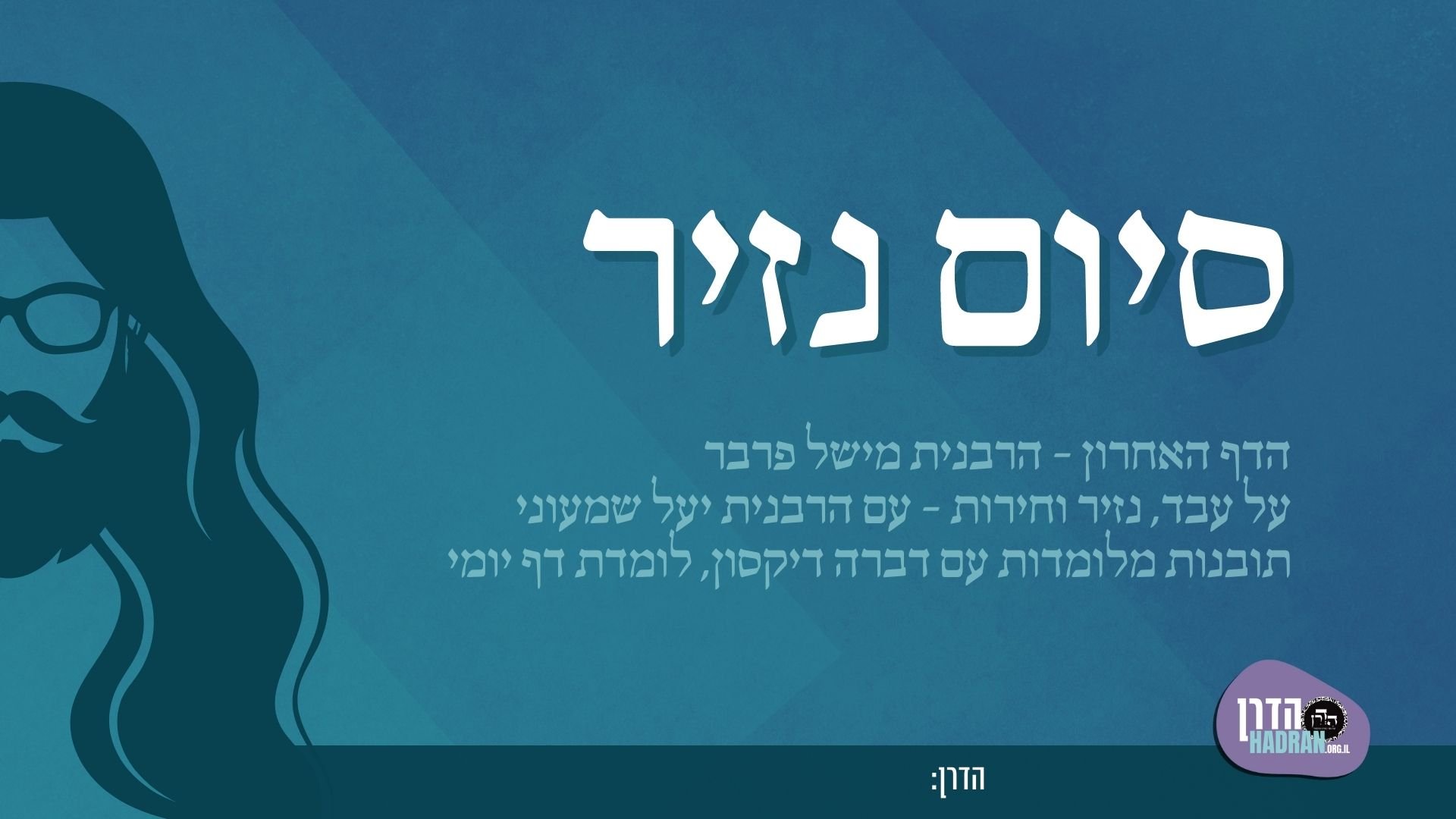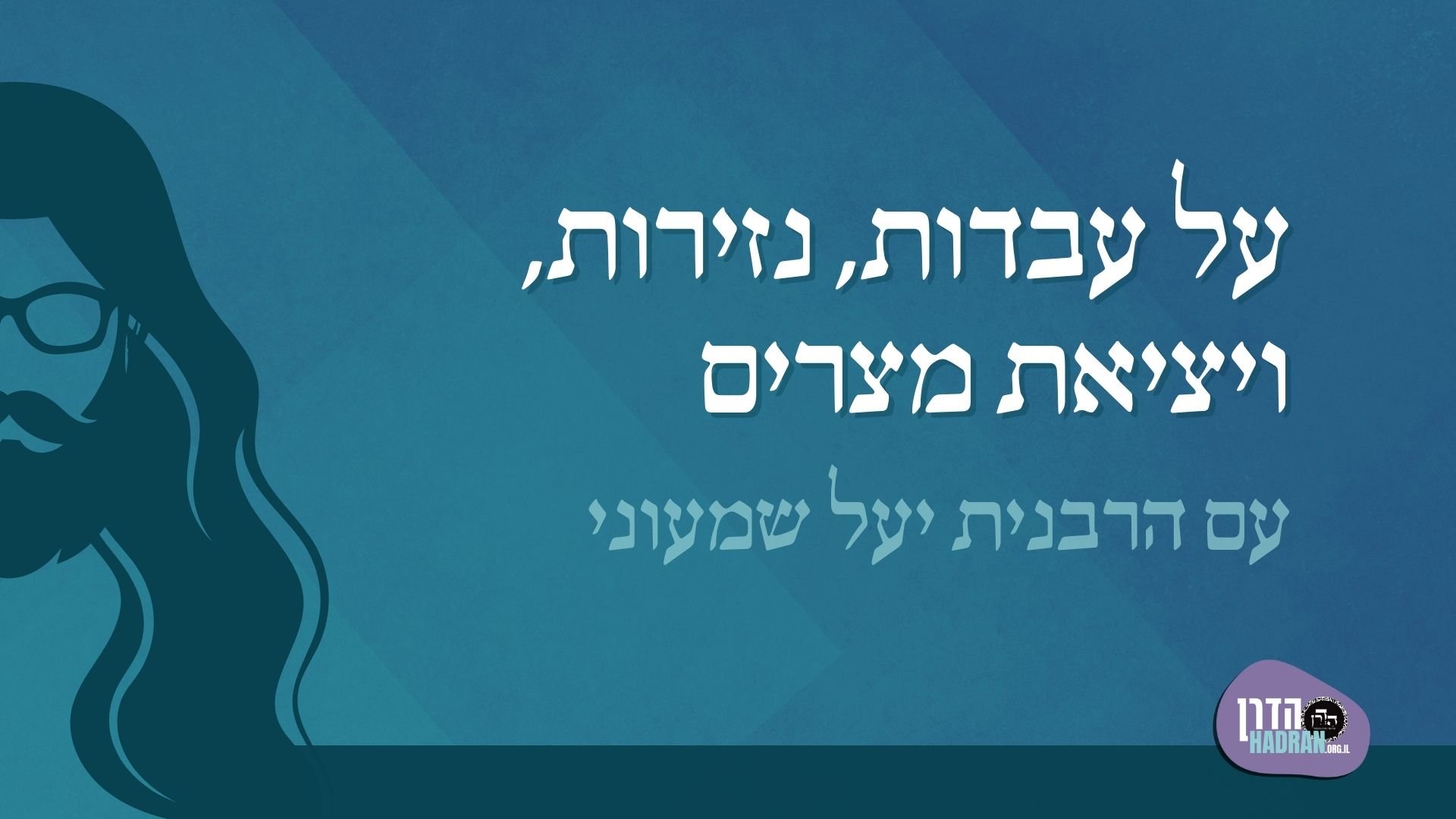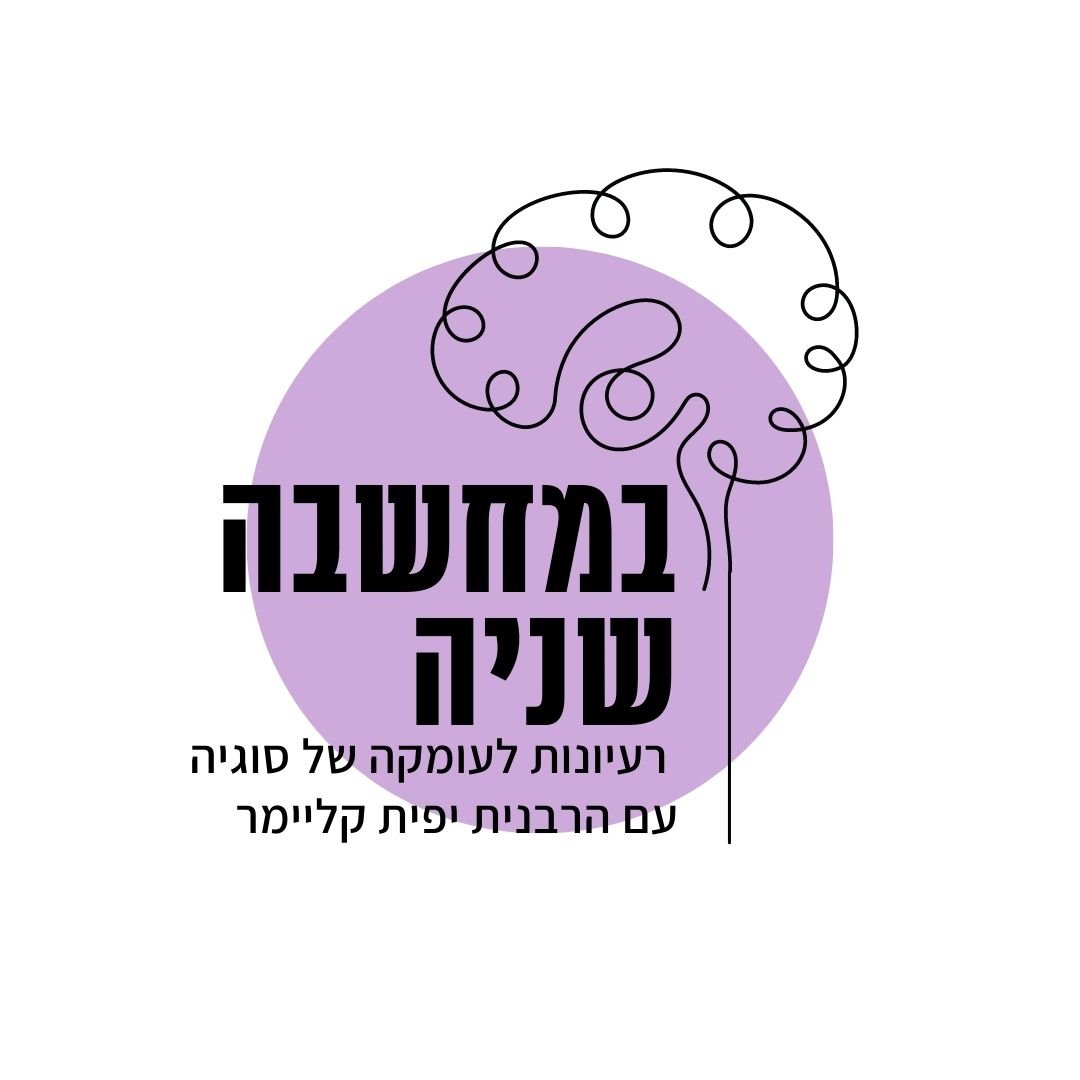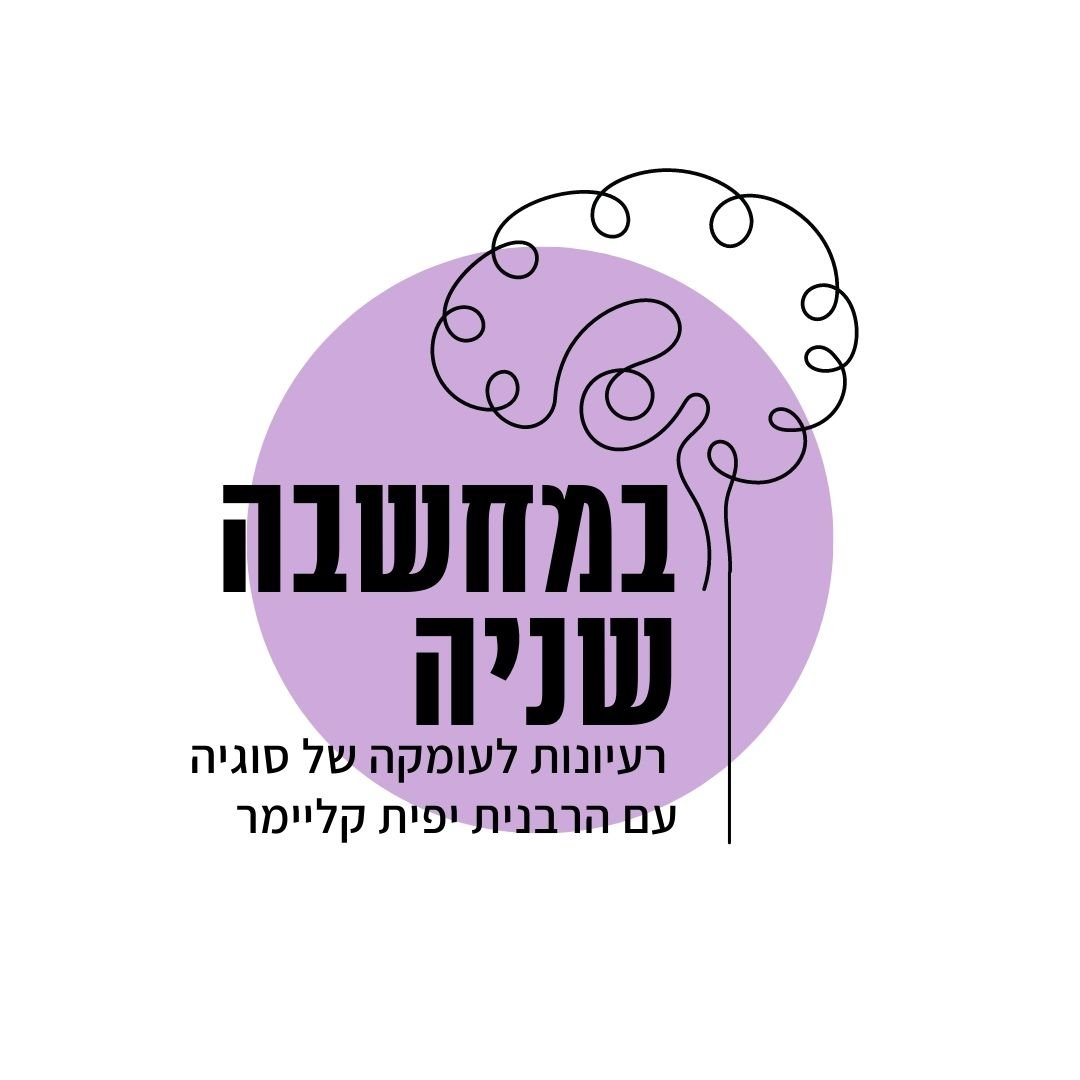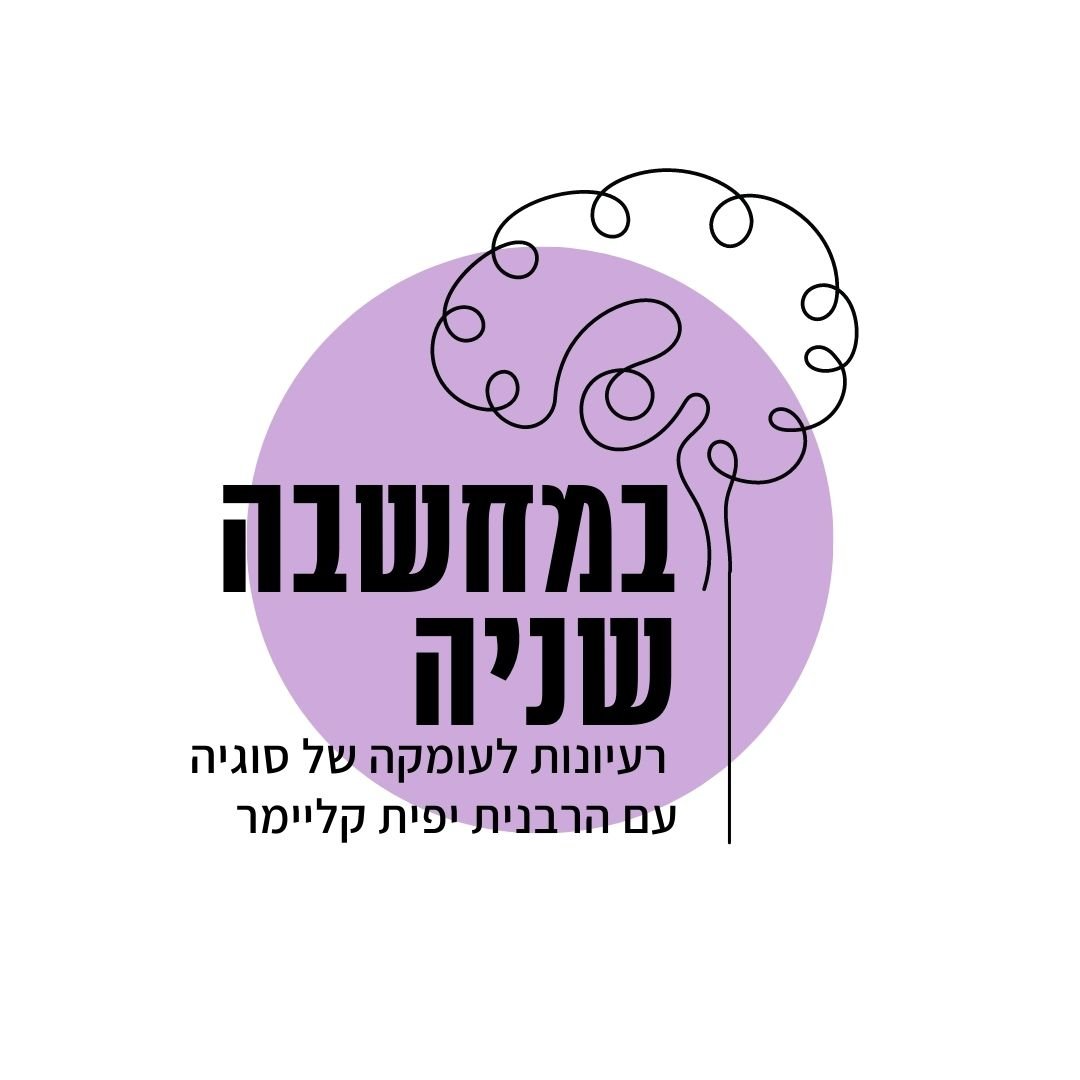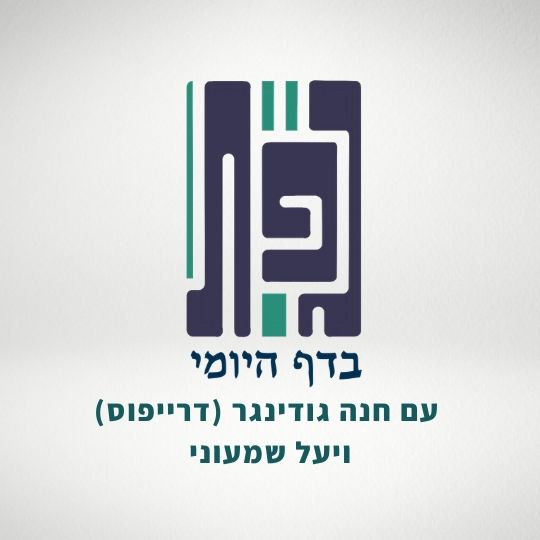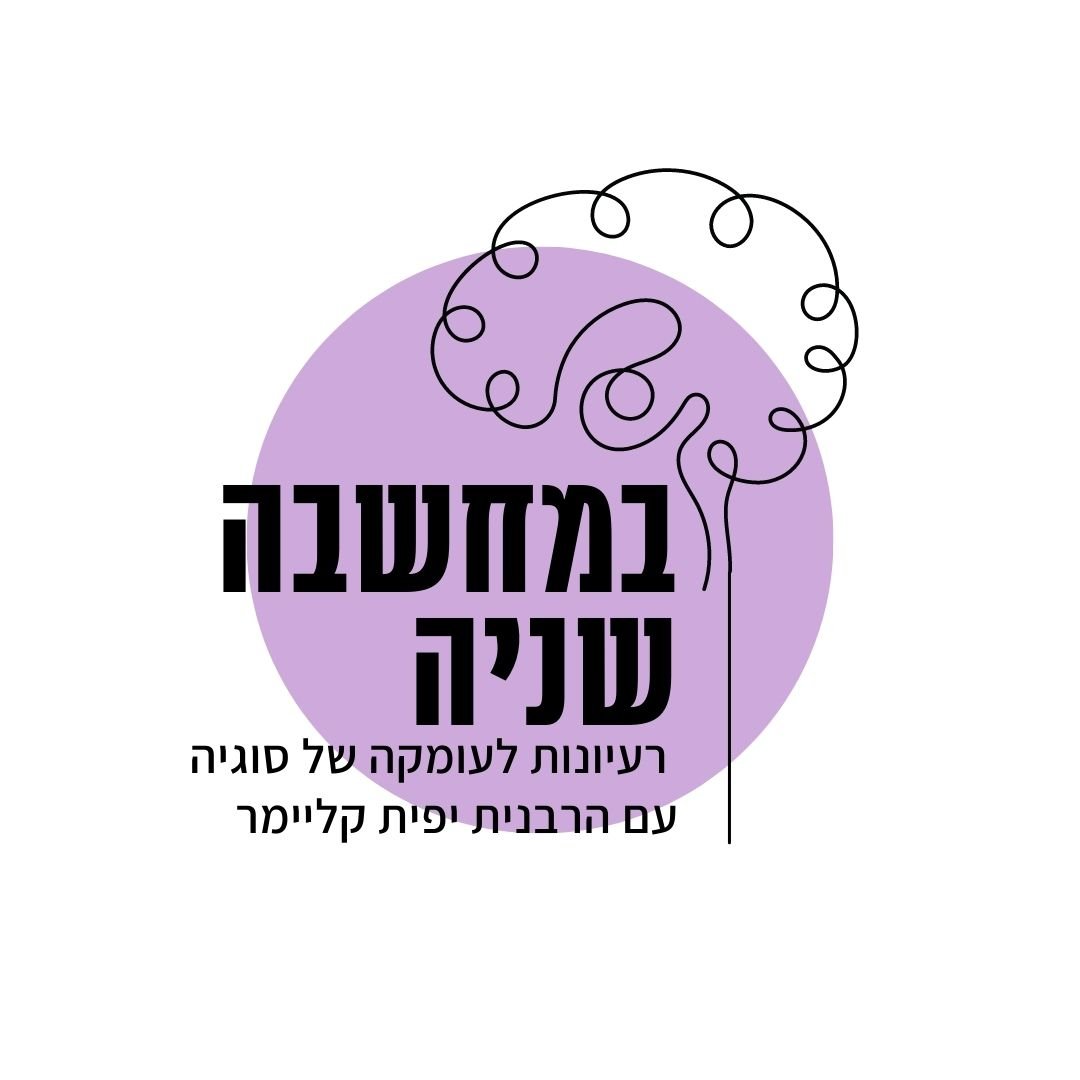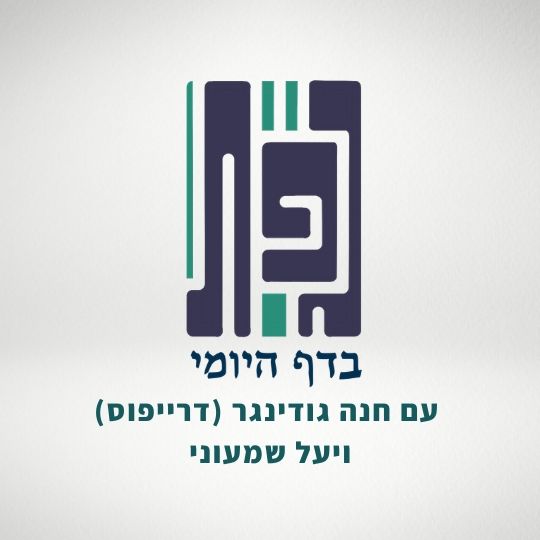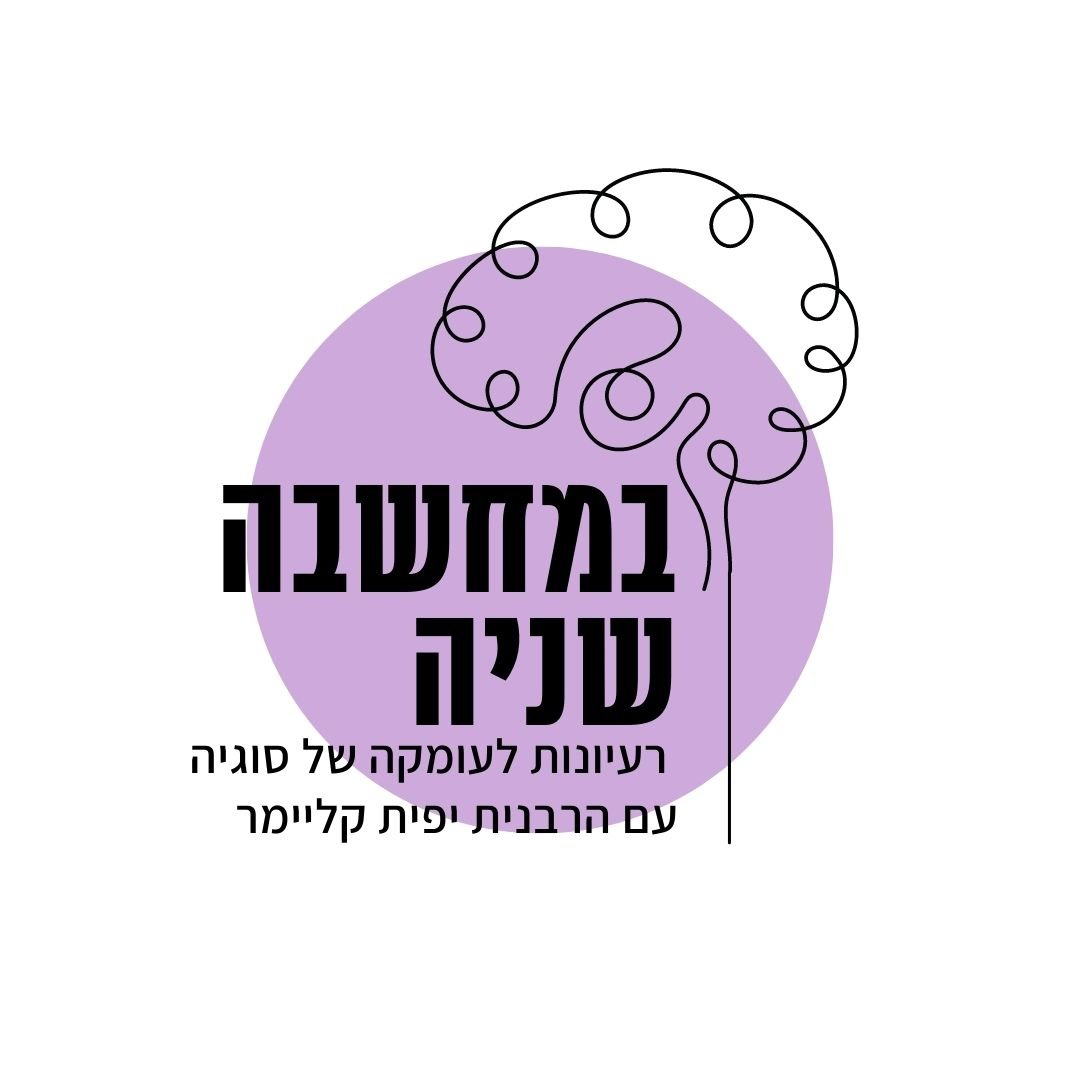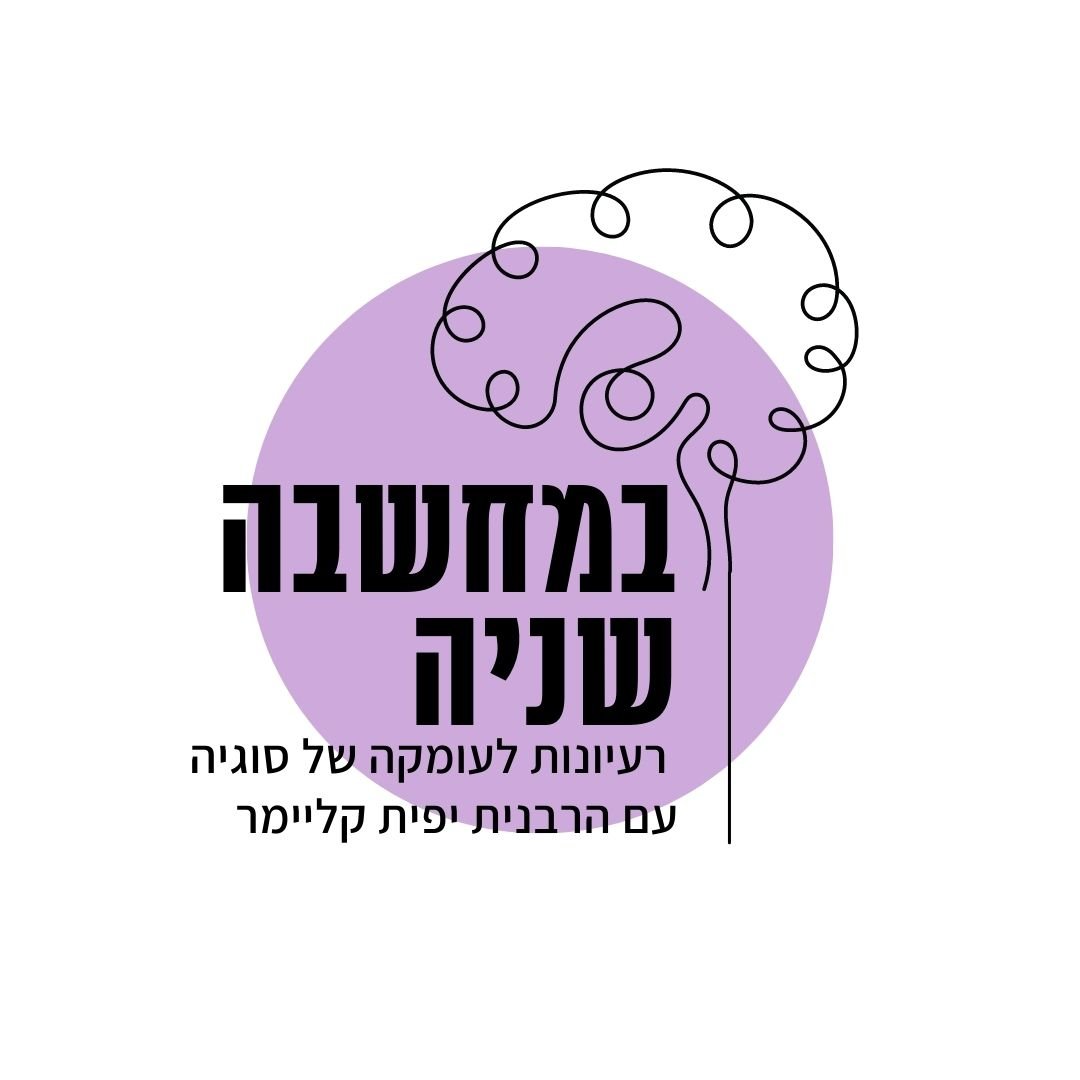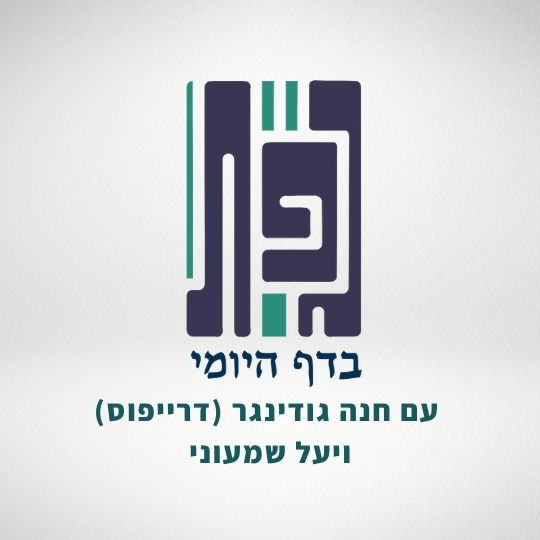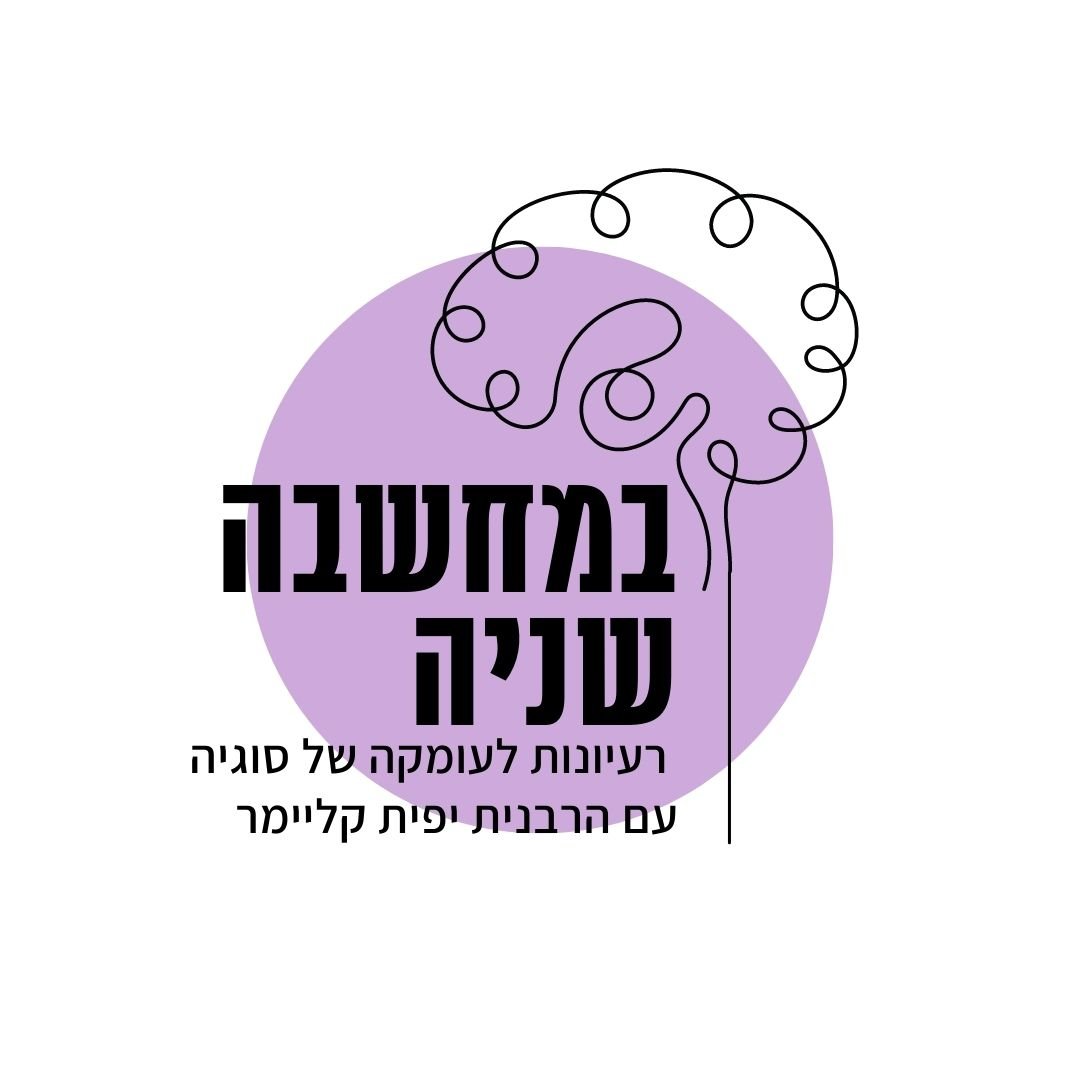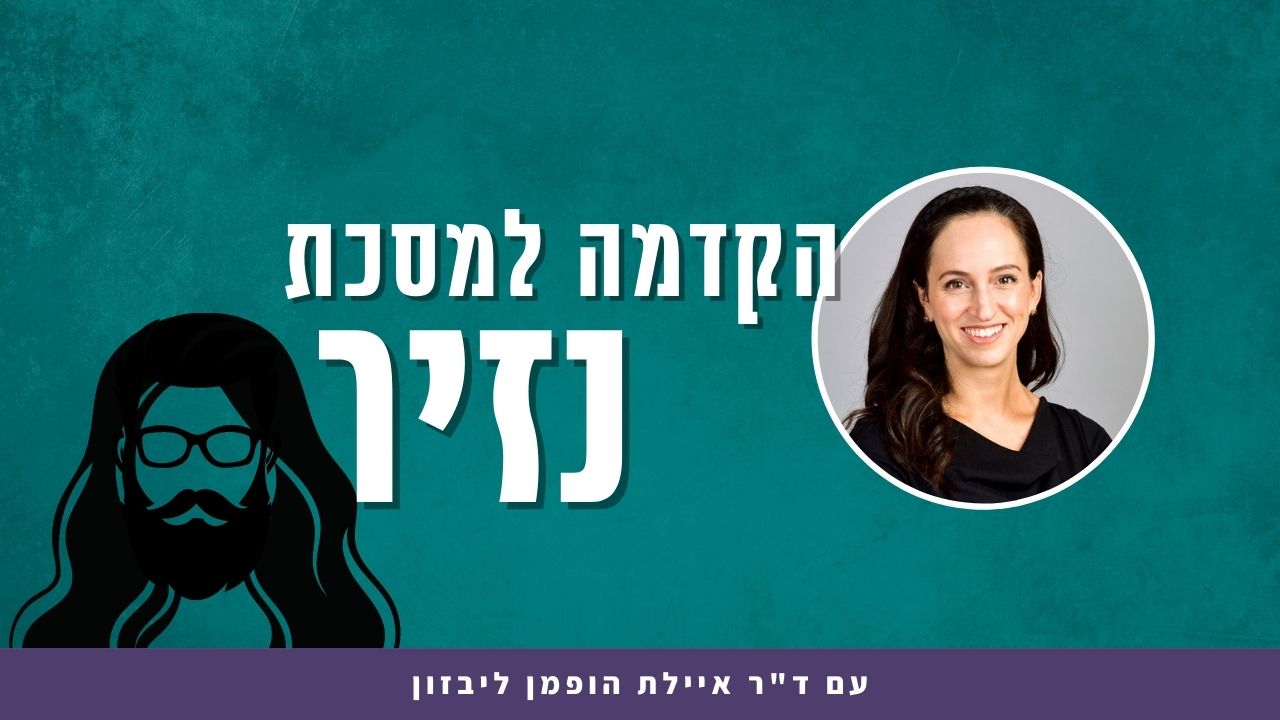ריש לקיש קבע שאם אחד אומר "הריני” ואחר אמר "ואני” ואחר אמר "ואני”, זה תקף רק אם נאמר בתוך כדי דיבור. תמיכה לדבריו מובאת מברייתא. הם מנסים להוכיח זאת גם מכך שבמשנתנו נרשמו רק שני אנשים שהגיבו "ואני” ולא יותר. אבל תשובה זו נדחית מכיוון שהתנא לא צפוי לספור מקרים בדיוק כפי שרוכל סופר את מרכולתם. אם כן, מדוע התנא לא רשם אדם אחד שאמר "ואני”? נשאלות שתי שאלות ומובאים מקורות, כולל משנתנו, כדי לנסות לענות על השאלה. שאלה ראשונה: כאשר אומר "ואני” האם הוא מתפיס את דבריו לאדם הראשון שאמר הריני נזיר או למי שאמר "ואני” ממש לפניו? השאלה השניה היא: כאשר בעל מפר את נדרי אשתו האם זה מפר אותם מלכתחילה, כאילו מעולם לא נדרה (מיעקר עקר), או שמא חותך את הנדר מעכשיו (מיגז גייז)? רוב המקורות המובאים כדי לענות על השאלות נדחים, אבל בשאלה הראשונה, הם מוצאים את התשובה בסופו של דבר בברייתא מפורשת.
הלימוד השבוע מוקדש לזכות ולשלום הַיְימׇנוֹט אֱמוּנָה בַּת באנצ’י (קָסָאוּ) בת 11 שנעלמה במקום מגוריה בצפת, לפני שנתיים, ביום ט”ז אדר תשפ”ד (25.2.24), ולא נודעו עקבותיה.
הלימוד השבוע מוקדש למען ביטחון המדינה, החיילים והאזרחים, ולמען חירותו של העם האיראני. שנזכה בקרוב שיתקיים בנו הפסוק: "לַיְּהוּדִים הָיְתָה אוֹרָה וְשִׂמְחָה וְשָׂשֹׂן וִיקָר”.
רוצה להקדיש שיעור?

כלים
הלימוד השבוע מוקדש לזכות ולשלום הַיְימׇנוֹט אֱמוּנָה בַּת באנצ’י (קָסָאוּ) בת 11 שנעלמה במקום מגוריה בצפת, לפני שנתיים, ביום ט”ז אדר תשפ”ד (25.2.24), ולא נודעו עקבותיה.
הלימוד השבוע מוקדש למען ביטחון המדינה, החיילים והאזרחים, ולמען חירותו של העם האיראני. שנזכה בקרוב שיתקיים בנו הפסוק: "לַיְּהוּדִים הָיְתָה אוֹרָה וְשִׂמְחָה וְשָׂשֹׂן וִיקָר”.
כלים
העמקה
רוצה להבין מה באמת קורה מתחת לפני השטח של הסוגיה?
שיעורים, פודקאסטים והרחבות של מיטב המורות שלנו יפתחו לך עוד זוויות וכיווני חשיבה.
חדשה בלימוד הגמרא?
זה הדף הראשון שלך? איזו התרגשות עצומה! יש לנו בדיוק את התכנים והכלים שיעזרו לך לעשות את הצעדים הראשונים ללמידה בקצב וברמה שלך, כך תוכלי להרגיש בנוח גם בתוך הסוגיות המורכבות ומאתגרות.
פסיפס הלומדות שלנו
גלי את קהילת הלומדות שלנו, מגוון נשים, רקעים וסיפורים. כולן חלק מתנועה ומסע מרגש ועוצמתי.
נזיר כא
תַּנְיָא נָמֵי הָכִי: מִי שֶׁאָמַר ״הֲרֵינִי נָזִיר״, וְשָׁמַע חֲבֵירוֹ וְשָׁהָה כְּדֵי דִבּוּר, וְאָמַר ״וַאֲנִי״ — הוּא אָסוּר, וַחֲבֵירוֹ מוּתָּר. וְכַמָּה כְּדֵי דִבּוּר — כְּדֵי שְׁאֵילַת שָׁלוֹם תַּלְמִיד לָרַב.
This is also taught in a baraita: In the case of one who said: I am hereby a nazirite, and another heard him and waited the time required for speaking a short phrase and then said: And I, the first person is bound by his vow and the other is permitted, as too much time passed between their respective vows. And how much time is the time required for speaking? It is the time necessary for a student to inquire after the welfare of his rabbi.
לֵימָא מְסַיְּיעָא לֵיהּ: מִי שֶׁאָמַר ״הֲרֵינִי נָזִיר״, וְשָׁמַע חֲבֵירוֹ וְאָמַר ״וַאֲנִי״ ״וַאֲנִי״, וְתוּ לָא! תַּנָּא כִּי רוֹכְלָא לִיחְשֹׁיב וְלֵיזִיל?!
The Gemara suggests: Shall we say that the mishna supports Reish Lakish’s opinion? As it is taught: In the case of one who said: I am hereby a nazirite, and another heard him and said: And I, and a third person heard him and said: And I, they are all nazirites. The mishna mentions: And I, twice and no more, which indicates that only two people can associate themselves with the vow of the first one. The reason for this must be because too much time has passed since the first person spoke. The Gemara rejects this argument: This is no proof, as should the tanna have continued reckoning cases like a peddler, who announces his wares over and over again, by repeating: And I, and I, over and over again?
וְלִיתְנֵי חַד וְלַשְׁמְעִינַן הָנֵי! הָכָא נָמֵי, וּמִשּׁוּם דְּקָתָנֵי סֵיפָא הוּתַּר הָרִאשׁוֹן הוּתְּרוּ כּוּלָּן, הוּתַּר הָאַחֲרוֹן — הָאַחֲרוֹן מוּתָּר וְכוּלָּן אֲסוּרִין, מִכְּלָל דְּאִיכָּא אֶמְצָעִי, וּמִשּׁוּם הָכִי קָתָנֵי ״וַאֲנִי״ ״וַאֲנִי״.
The Gemara raises a difficulty: But if the tanna wishes to be concise, let him teach only one example, and teach us these other cases of others who say: And I, by means of a single example. The Gemara answers: Indeed, this is in fact correct, but because the tanna teaches in the latter clause: If the vow of the first was dissolved by a halakhic authority then they are all dissolved, but if the vow of the last individual was dissolved by a halakhic authority then the vow of the last individual is dissolved and all the others remain bound by their vow, one may conclude by inference that there is a middle person between the first and the last. And due to that reason the tanna teaches: And I, and I, so that the case would include three people, but not because a fourth person is unable to associate himself with the vow of the first in the same manner.
אִיבַּעְיָא לְהוּ: חַד בְּחַבְרֵיהּ מִיתְּפִיס, אוֹ דִּלְמָא בְּקַמָּא מִיתַּפְסִי? לְמַאי נָפְקָא מִינַּהּ — לְאִתְּפוֹסֵי וּמֵיזַל. אִי אָמְרַתְּ חַד בְּחַבְרֵיהּ מִתְּפִיס — מִתַּפְסִין וְאָזְלִין לְעוֹלָם. וְאִי אָמְרַתְּ בְּקַמָּא מִתַּפְסִי — טְפֵי מִכְּדֵי דִבּוּר לָא מִתַּפְסִין. מַאי?
With regard to the same issue, a dilemma was raised before the Sages: Does each one take a vow by associating himself with the vow of the other, i.e., the individual who spoke immediately before him, or perhaps they all associate themselves with the vow of the first one? The Gemara asks: What difference is there? The Gemara answers that the difference is whether an unlimited number of people can continue to associate themselves with the vows. If you say that each one associates himself with the vow of the other who spoke immediately before him, others can continue to associate themselves with these vows forever, provided that they each do so immediately after the previous individual. And if you say they all associate themselves with the vow of the first one, they may not associate themselves with the vow if more time has elapsed than the time required for speaking a short phrase since the vow of the first individual. What is the answer to this dilemma?
תָּא שְׁמַע: ״הֲרֵינִי נָזִיר״, וְשָׁמַע חֲבֵירוֹ וְאָמַר ״וַאֲנִי״ ״וַאֲנִי״, וְתוּ לָא מִידֵּי, שְׁמַע מִינַּהּ בְּקַמָּא הוּא דְּמִתַּפְסִי, דְּאִי סָלְקָא דַעְתָּךְ חַד בְּחַבְרֵיהּ מִיתְּפִיס — לִיתְנֵי טוּבָא ״וַאֲנִי״! תַּנָּא כִּי רוֹכְלָא לִיחְשֹׁיב וְלֵיזִיל?!
The Gemara suggests: Come and hear a proof from the mishna: With regard to one who said: I am hereby a nazirite, and another heard this vow and said: And I, and a third person added: And I, they are all nazirites. The mishna mentions only two individuals who associated themselves with the initial vow, and no more. Learn from this that they all associated themselves with the vow of the first one, as, if it should enter your mind that each one associates himself with the vow of the other who came immediately before, let the mishna teach: And I, many times. The Gemara answers as before: This is no proof, as should the tanna have continued reckoning cases like a peddler? It was enough for him to state: And I, twice.
וְלִיתְנֵי חַד וְלַשְׁמְעִינַן כּוּלְּהוֹן! אַיְּידֵי דְּקָתָנֵי הוּתַּר הָרִאשׁוֹן — הוּתְּרוּ כּוּלָּן, הוּתַּר הָאַחֲרוֹן — הָאַחֲרוֹן מוּתָּר וְכוּלָּן אֲסוּרִין, מִכְּלָל דְּאִיכָּא אֶמְצָעִי, מִשּׁוּם הָכִי קָתָנֵי ״וַאֲנִי״ ״וַאֲנִי״.
The Gemara asks: But if the tanna wished to avoid repeating: And I, so many times, let him teach it only once, and we would learn that they are all nazirites based on that example. The Gemara answers: Since the tanna teaches in the latter clause: If the vow of the first was dissolved by a halakhic authority then they are all dissolved, but if the vow of the last individual was dissolved by a halakhic authority then the vow of the last individual is dissolved and all the others remain bound by their vows, one may conclude by inference that there is a middle person between the first and the last. It is due to that reason that the tanna teaches: And I, and I, so that the case would include three people, but not because a fourth person is unable to associate himself with the vow of the first in the same manner.
תָּא שְׁמַע: הוּתַּר הָרִאשׁוֹן — הוּתְּרוּ כּוּלָּן. רִאשׁוֹן הוּא דִּשְׁרוּ, הָא אֶמְצָעִי לָא, שְׁמַע מִינַּהּ בְּקַמָּא מִתַּפְסִין.
The Gemara suggests: Come and hear a proof from the mishna: If the vow of the first individual was dissolved, they are all dissolved. This indicates that it is only if the first one was dissolved that they are all considered dissolved. However, if the vow of the middle person was dissolved, no, the vows of the individuals following him are not considered dissolved. Learn from this that they all associated themselves with the vow of the first one.
אֵימָא לָךְ: לְעוֹלָם חַד בְּחַבְרֵיהּ מִתְּפִיס. וְאַיְּידֵי דְּבָעֵי מִיתְנֵא ״הוּתְּרוּ כּוּלָּן״, דְּאִי תְּנָא אֶמְצָעִי, אִיכָּא רִאשׁוֹן דְּלָא מִשְׁתְּרֵי, מִשּׁוּם הָכִי קָתָנֵי רִאשׁוֹן.
The Gemara refutes this argument: I could say to you that actually, each associates himself with the vow of the other who immediately preceded him, and therefore if the vow of the middle person was dissolved, the vows of all those who came after him are also dissolved. But since the tanna wanted to teach: They are all dissolved, and had he taught the case where the vow of the middle individual was dissolved, he would have had to state that there is still the vow of the first individual that is not dissolved, because his vow is not dependent on that of the middle one. Due to that reason the tanna teaches the case where the vow of the first one was dissolved. Consequently, no proof can be brought from here.
תָּא שְׁמַע: הוּתַּר הָאַחֲרוֹן — הָאַחֲרוֹן מוּתָּר וְכוּלָּן אֲסוּרִין. דְּלָא אִיכָּא אַחֲרִינָא בָּתְרֵיהּ, אֲבָל אֶמְצָעִי, דְּאִיכָּא אַחֲרִינָא בָּתְרֵיהּ — מִשְׁתְּרֵי. שְׁמַע מִינַּהּ חַד בְּחַבְרֵיהּ מִתְּפִיס.
The Gemara suggests another proof from the mishna: Come and hear: If the last was dissolved, the last is dissolved and they are all bound by their vows. It can be inferred from here that only in that case is the vow of the last one alone dissolved, as he is not followed by anyone. However, if the dissolved vow was of the middle one, who is followed by someone else, the vow of the last one who comes after him is also dissolved. One can learn from this that each one associates himself with the vow of the other individual.
לְעוֹלָם אֵימָא לָךְ: בְּקַמָּא מִיתַּפְסִין, וּמַאי ״אַחֲרוֹן״ דְּקָתָנֵי — אֶמְצָעִי, וְאַיְּידֵי דִּתְנָא רִאשׁוֹן, תְּנָא אַחֲרוֹן.
The Gemara rejects this claim as well: Actually, I could say to you that they all associate themselves with the vow of the first one, and what is the meaning of: The last one, that the mishna teaches? It means the middle one, the dissolution of whose vow does not cause the vow of the person who followed him to be dissolved. And why is the middle one called the last one? Since the tanna earlier taught: First, here he taught: Last, despite the fact that he is referring to the middle one.
תָּא שְׁמַע, דְּתַנְיָא בְּהֶדְיָא: הוּתַּר הָרִאשׁוֹן — הוּתְּרוּ כּוּלָּן, הוּתַּר הָאַחֲרוֹן — הָאַחֲרוֹן מוּתָּר וְכוּלָּן אֲסוּרִין, הוּתַּר אֶמְצָעִי — הֵימֶנּוּ וּלְמַטָּה מוּתָּר, הֵימֶנּוּ וּלְמַעְלָה — אָסוּר, שְׁמַע מִינַּהּ חַד בְּחַבְרֵיהּ מִתְּפִיס, שְׁמַע מִינַּהּ.
The Gemara further suggests: Come and hear, as it is taught in a baraita explicitly: If the first one is dissolved, they are all dissolved; if the last one is dissolved, the last one is dissolved and they are all bound by their vows. If the middle one is dissolved, the vows of anyone from him and after him are dissolved; those who vowed from him and before him are bound by their vows. One can learn from this that each associates himself with the vow of the other individual. The Gemara concludes: Learn from this that it is so.
״הֲרֵינִי נָזִיר״, וְשָׁמַע חֲבֵירוֹ וְאָמַר ״פִּי כְּפִיו וּשְׂעָרִי כִּשְׂעָרוֹ וְכוּ׳״. מִשּׁוּם דְּאָמַר ״פִּי כְּפִיו וּשְׂעָרִי כִּשְׂעָרוֹ״ הֲרֵי נָזִיר?
§ The mishna taught that one stated: I am hereby a nazirite, and if another heard and said, my mouth is like his mouth, and my hair is like his hair, he is a nazirite. The Gemara asks: Just because he said: My mouth is like his mouth and my hair is like his hair, is he a nazirite?
וּרְמִינְהוּ: ״יָדִי נְזִירָה״ וְ״רַגְלִי נְזִירָה״ — לֹא אָמַר כְּלוּם, ״רֹאשִׁי נְזִירָה״, ״כְּבֵדִי נְזִירָה״ — הֲרֵי זֶה נָזִיר. זֶה הַכְּלָל: דָּבָר שֶׁהַנְּשָׁמָה תְּלוּיָה בּוֹ — הֲרֵי זֶה נָזִיר.
And the Gemara raises a contradiction against this. If one said: My hand is a nazirite, and similarly, if he said: My foot is a nazirite, he has not said anything of consequence. However, if he said: My head is a nazirite, or: My liver is a nazirite, he is a nazirite. This is the principle: If one accepted naziriteship by means of an entity upon which life depends, i.e., a limb or a body part that he cannot survive without, he is a nazirite. Conversely, if he mentioned part of the body that is not essential for life, he is not a nazirite. In this case, as he referred to his hair, which is certainly not a vital part of him, he should not be a nazirite.
אָמַר רַב יְהוּדָה, דְּאָמַר הָכִי: יֵעָשֶׂה פִּי כְּפִיו מִיַּיִן, וּשְׂעָרִי כִּשְׂעָרוֹ מִלָּגוֹז.
Rav Yehuda said that it means that he said like this; this is what he intended: Let my mouth be like his mouth with regard to abstention from wine, and my hair be like his hair with regard to abstention from cutting it.
״הֲרֵינִי נְזִירָה״, וְשָׁמַע בַּעְלָהּ וַאֲמַר ״וַאֲנִי״ אֵינוֹ יָכוֹל לְהָפֵר. אִיבַּעְיָא לְהוּ: בַּעַל מִיעְקָר עָקַר, אוֹ דִּלְמָא מִיגָּז גָּיֵיז? לְמַאי נָפְקָא מִינַּהּ —
§ The mishna taught that if a woman said: I am hereby a nazirite, and her husband heard and said: And I, he cannot nullify her vow. A dilemma was raised before the Sages: When a husband nullifies the vow of his wife, does he uproot his wife’s vow, making it as though she never vowed, or perhaps he merely severs her vow from that point onward, but her vow was still in effect until he nullified it? The Gemara asks: What difference is there resulting from this dilemma?
לְאִשָּׁה שֶׁנָּדְרָה בְּנָזִיר, וְשָׁמְעָה חֲבֶרְתָּהּ וְאָמְרָה ״וַאֲנִי״, וְשָׁמַע בַּעְלָהּ שֶׁל רִאשׁוֹנָה וְהֵפֵר לָהּ. אִי אָמְרַתְּ מִיעְקָר עָקַר — הַהִיא נָמֵי אִישְׁתְּרַאי. וְאִי אָמְרַתְּ מִיגָּז גָּיֵיז — אִיהִי אִישְׁתְּרַאי, חֲבֶרְתַּהּ אֲסִירָא. מַאי?
The Gemara explains that the difference is with regard to a woman who vowed to be a nazirite, and another woman heard and said: And I, and the husband of the first woman heard and nullified her vow. If you say that the husband uproots the vow entirely, the vow of that second woman should also be dissolved, as she associated herself with a non-existent vow. And if you say he severs it from this point, the vow of his wife is dissolved, but the other woman remains bound by her vow, as the first vow was intact when she associated herself with it. What, then, is the answer to this dilemma?
תָּא שְׁמַע: ״הֲרֵינִי נְזִירָה״ וְשָׁמַע בַּעְלָהּ וְאָמַר ״וַאֲנִי״ — אֵינוֹ יָכוֹל לְהָפֵר. וְאִי סָלְקָא דַּעְתָּךְ בַּעַל מִיגָּז גָּיֵיז — לֵיפַר לְאִישְׁתּוֹ וְהוּא לִיתְּסַר. אֶלָּא לָאו שְׁמַע מִינַּהּ, בַּעַל מִיעְקָר עָקַר.
The Gemara suggests: Come and hear the statement of the mishna: If she said: I am hereby a nazirite, and her husband heard and said: And I, he cannot nullify her vow. And if it should enter your mind that the husband severs the vow from that moment onward, let him nullify the vow for his wife and he will remain bound by his vow, since if the vow is not nullified retroactively, her vow was intact when he associated himself with it. Rather, must one not conclude from the mishna that the husband uproots the vow entirely, which means he would also uproot his own vow by nullifying hers, and that is why he is unable do so?
לָא, לְעוֹלָם מִיגָּז גָּיֵיז. וּבְדִין הוּא דְּלֵיפַר לַהּ. וְהַיְינוּ טַעְמָא דְּלָא מָצֵי מֵיפַר, כֵּיוָן דְּאָמַר לַהּ ״וַאֲנִי״, כְּמַאן דְּאָמַר ״קַיָּים לִיכִי״ דָּמֵי. אִי מִתְּשִׁיל אַהֲקָמָתוֹ, — מָצֵי מֵיפַר, וְאִי לָא — לָא מָצֵי מֵיפַר.
The Gemara refutes this argument: No; actually, one can say that the husband severs the vow from that point onward. And if there were no other points to consider, by right the mishna should have taught that he can nullify her vow for her; and this is the reason why he cannot nullify it: Since he said to her: And I, he is considered like one who said: It is upheld for you, and once a husband has upheld his wife’s vow he can no longer nullify it. Consequently, if he requested to have his upholding dissolved by a Sage, he can nullify her vow, and if not, he cannot nullify it. Consequently, the ruling of the mishna does not resolve the dilemma.
תָּא שְׁמַע: הָאִשָּׁה שֶׁנָּדְרָה בְּנָזִיר, וְהִפְרִישָׁה אֶת בְּהֶמְתָּהּ, וְאַחַר כָּךְ הֵפֵר לָהּ בַּעְלָהּ, אִם שֶׁלּוֹ הָיְתָה הַבְּהֵמָה — תֵּצֵא וְתִרְעֶה בָּעֵדֶר. וְאִם שֶׁלָּהּ הָיְתָה הַבְּהֵמָה — הַחַטָּאת תָּמוּת.
The Gemara cites another mishna (24a): Come and hear: With regard to a woman who vowed to be a nazirite and separated her animal for this purpose (see Numbers 6:13–14), and afterward her husband nullified her vow, which means that she is no longer obligated to bring an offering, if the animal was his, which he had given to her, it is as though it were never consecrated at all, and it shall go out and graze among the flock like a regular, non-consecrated animal, until it becomes blemished. And if the animal was hers, and it was designated for a sin-offering, it must be placed in isolation for it to die, in accordance with the general halakha that a sin-offering that may not be sacrificed must be left to die.
וְאִי סָלְקָא דַעְתָּךְ בַּעַל מִיעְקָר עָקַר — תִּיפּוֹק לְחוּלִּין! אֶלָּא לָאו שְׁמַע מִינַּהּ, בַּעַל מִיגָּז גָּיֵיז!
The Gemara explains the difficulty from this mishna: And if it should enter your mind that the husband uproots the vow, the sin-offering should be released as a non-sacred animal, in accordance with the halakha of a sin-offering of a nazirite whose vow was nullified (31a). Rather, must one not conclude from the mishna that the husband merely severs the vow, which means that she was a nazirite when she separated the animal, and therefore it is consecrated?
לְעוֹלָם אֵימָא לָךְ בַּעַל מִיעְקָר עָקַר, וְהַיְינוּ טַעְמָא: כֵּיוָן דְּלֹא צְרִיכָה כַּפָּרָה, הֲוָת כְּחַטָּאת שֶׁמֵּתוּ בְּעָלֶיהָ, וּגְמִירִי דְּחַטָּאת שֶׁמֵּתוּ בְּעָלֶיהָ — תָּמוּת.
The Gemara rejects this proof: Actually, I could say to you that the husband uproots the vow, and this is the reason for the above ruling: Since she requires no atonement, as the vow is no longer in effect, this animal is treated as a sin-offering whose owners have died, and it is learned as a tradition that a sin-offering whose owners have died must be left to die.
תָּא שְׁמַע: הָאִשָּׁה שֶׁנָּדְרָה בְּנָזִיר, וְהָיְתָה שׁוֹתָה יַיִן וּמִטַּמְּאָה לְמֵתִים — הֲרֵי זוֹ סוֹפֶגֶת אֶת הָאַרְבָּעִים. הֵיכִי דָמֵי? אִילֵּימָא דְּלָא הֵיפַר לַהּ בַּעַל — צְרִיכָא לְמֵימַר?
The Gemara continues to cite relevant sources. Come and hear the following mishna (23a): With regard to a woman who vowed to be a nazirite and nevertheless was drinking wine and rendering herself ritually impure by contact with the dead, she incurs the forty lashes for violating a Torah prohibition. The Gemara analyzes this mishna: What are the circumstances of this case? If we say that her husband did not nullify her vow, need this be said that she is liable to receive lashes? After all, every nazirite who transgresses their vow incurs lashes.
אֶלָּא פְּשִׁיטָא דְּהֵיפַר לַהּ בַּעַל. וְאִי סָלְקָא דַעְתָּךְ בַּעַל מִיעְקָר עָקַר — אַמַּאי סוֹפֶגֶת אַרְבָּעִים? אֶלָּא לָאו שְׁמַע מִינַּהּ, בַּעַל מִיגָּז גָּיֵיז?
Rather, it is obvious that the husband nullified her vow. And if it should enter your mind that the husband uproots his wife’s vow, why does she incur the forty lashes? It is as though she never vowed at all. Rather, must one not conclude from the mishna that the husband severs the vow, and therefore she is liable for her earlier transgression?
לְעוֹלָם אֵימָא לָךְ בַּעַל מִיעְקָר עָקַר, וּמִשּׁוּם דְּקָתָנֵי סֵיפָא: הֵיפֵר לָהּ בַּעְלָהּ וְהִיא לֹא יָדְעָה, וְהָיְתָה שׁוֹתָה יַיִן וּמִטַּמְּאָה לְמֵתִים — אֵינָהּ סוֹפֶגֶת אֶת הָאַרְבָּעִים,
The Gemara refutes this argument: Actually, I could say to you that the husband uproots the vow, and the reason that the mishna teaches in this manner is due to the fact that the tanna teaches in the latter clause of the mishna: If the husband nullified her vow and she did not know, and she was drinking wine and rendering herself ritually impure by contact with the dead, she does not incur the forty lashes, despite her intention to sin, as she did not commit a transgression in practice.
